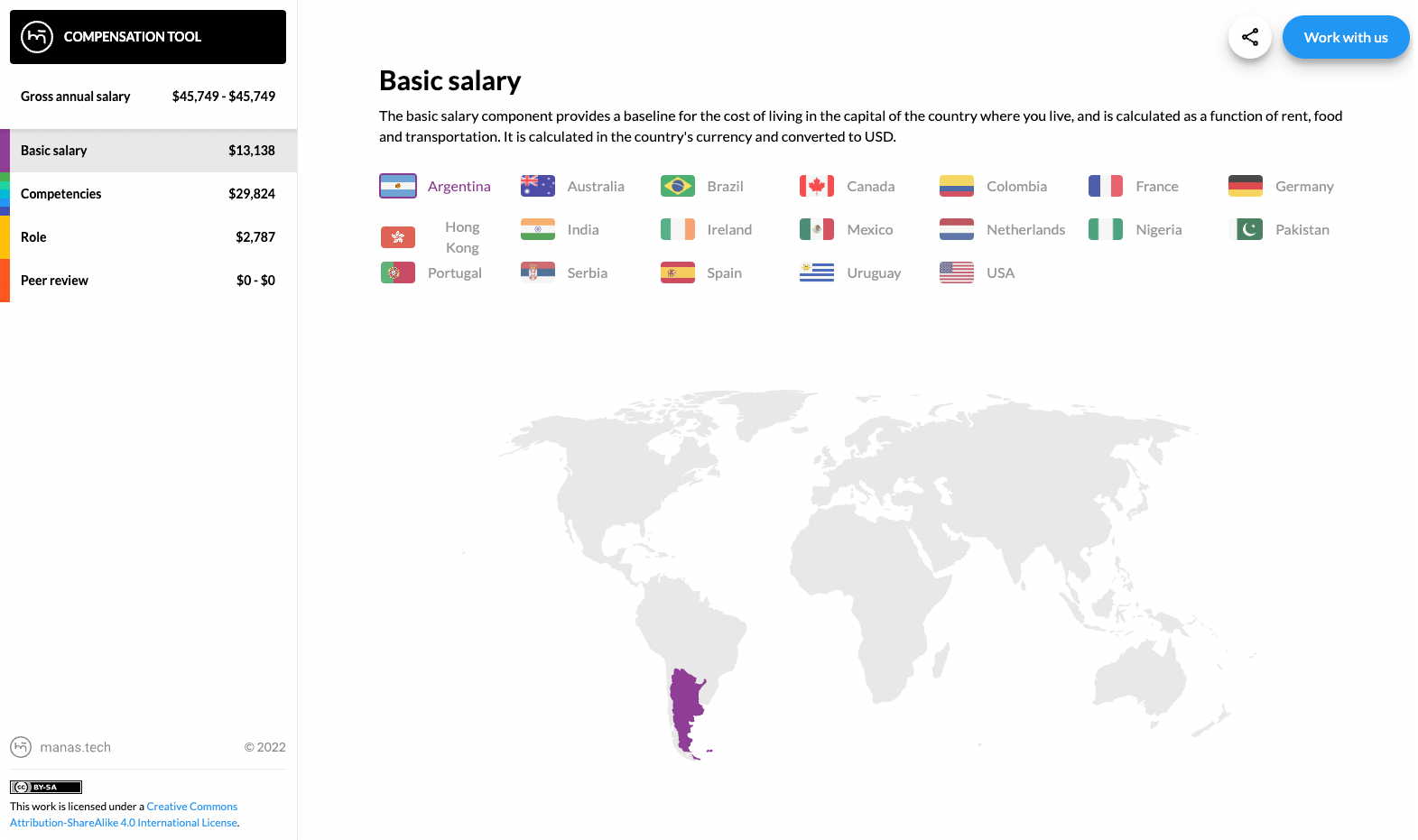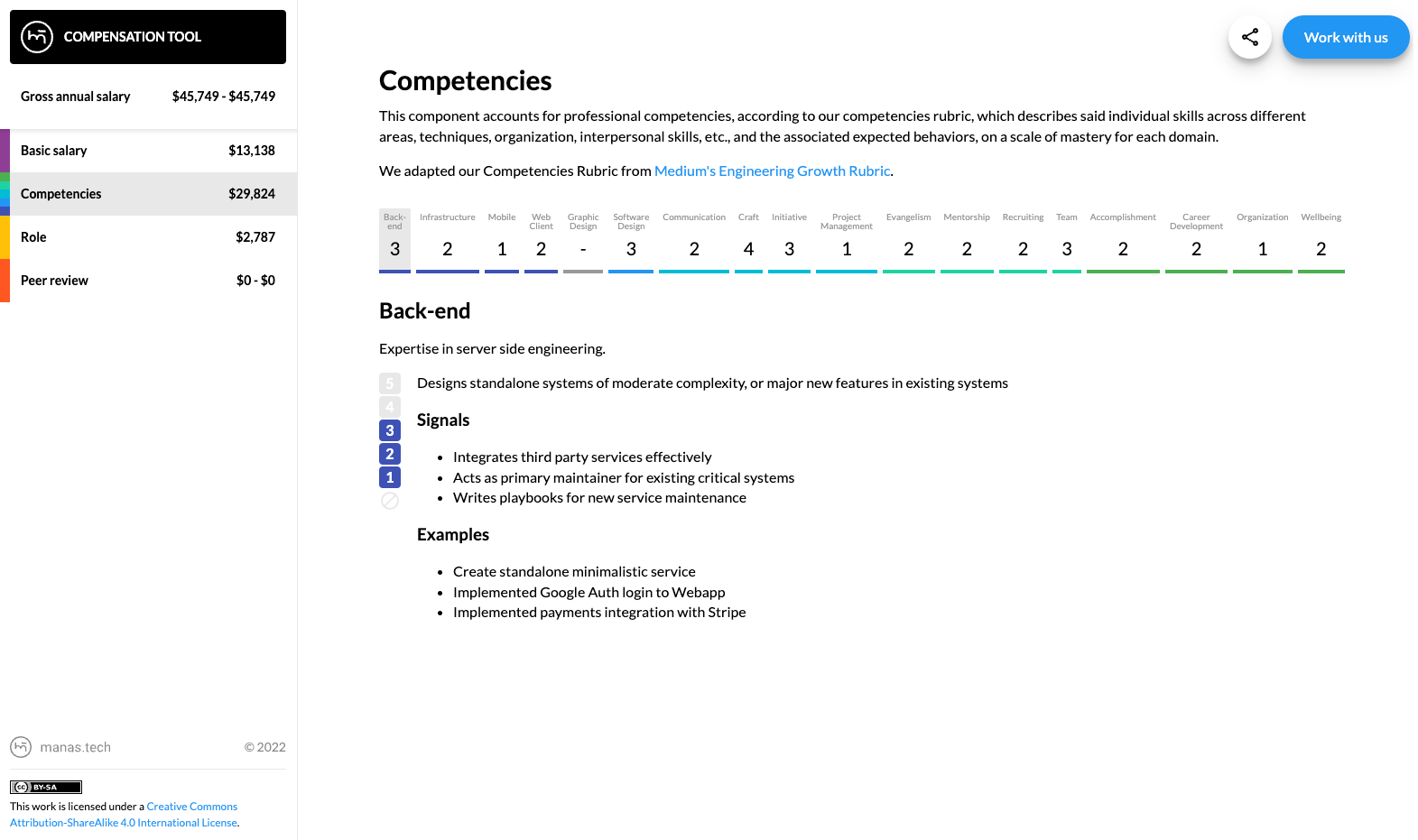Compensation tool
Problem description
There is a detailed description of how the compensation system at Manas works in a blogpost from a few years ago. The main problems we were trying to solve were:
- A single person unilaterally deciding salaries for everybody
- A fixed set of salaries for pre-defined roles where the tasks performed are almost a commodity
- Performance appraisals conducted on fixed criteria, which are riddled with biases, and then translated into a number
In the face of these problems, we wanted to achieve certain goals:
- We wanted to provide for cost-of-living in different countries and be up to date with inflation in each one.
- We wanted to be able to value experience, knowledge and skills in a transparent and objective as possible way.
- We wanted to encourage and recognize people assuming larger responsibilities.
- We wanted to reward performance and productivity.
- We wanted to use the collective wisdom to compensate for any errors, biases and gaps this system might have.
How the tool solves the problem
We designed a mixed system with two fixed components and two variable components.
The first two of those can only go up: Basic Salary and Competencies. They are defined by the place of residence of each person (basic salary) and by their skills, abilities, knowledge and experience (competencies).
The other two components are variable: Accountability and Peer-Review. They can fluctuate from period to period, according to the work done by each of us, and the levels of accountability and responsibility we each want to take on.
Basic salary
This view lets people pick their country of residence, to calculate the corresponding basic salary component.

Competencies
In this view, people can rate themselves on 18 tracks that correspond to 5 different skill-areas, to estimate this portion of their compensation.
